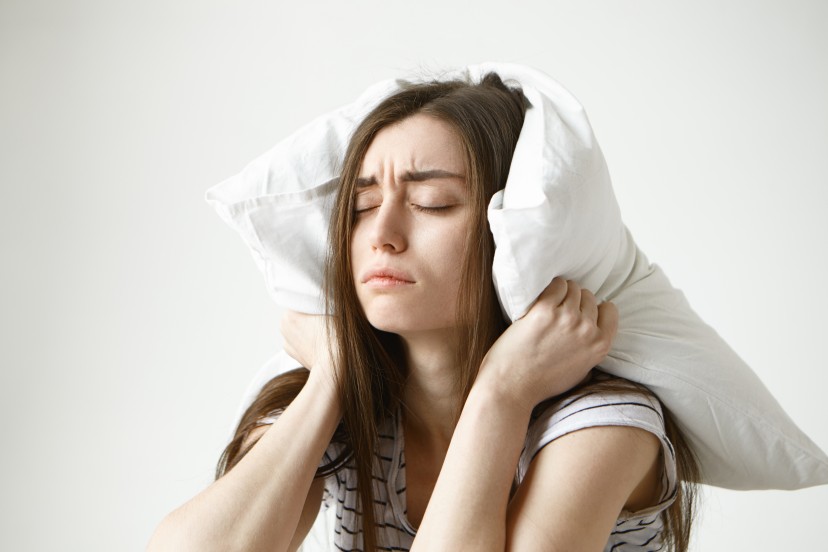Insomnia vs Sleep Apnea: What’s What?
Let’s break it down: both are sleep disorders that can seriously affect your quality of life. And yes, they’re also very common in adulthood.
Despite these similarities, there are important differences between the two conditions that make them easier to distinguish and diagnose.
We won’t waste your time. In this article, we’ll explain the main differences between insomnia and sleep apnea, the signs to watch out for, and what you can do in each case.
Shall we?
What is insomnia?
Insomnia is a sleep disorder that shows up as:
➡ difficulty falling asleep.
➡ light, non-restorative sleep.
➡ frequent awakenings during the night.
➡ waking up too early and being unable to fall back asleep.
There are two main types of insomnia:
➡ Acute: lasts less than 3 months and is usually caused by stress or temporary lifestyle changes.
➡ Chronic: lasts more than 3 months and may be linked to conditions like anxiety, depression, chronic pain, among others.
On the other hand…
Sleep apnea…
Is a disorder in which breathing stops temporarily during sleep. Yes, it’s a brief pause in breathing.
It can happen dozens or even hundreds of times a night, affecting the quality of your rest.
There are two main types:
➡ Obstructive Sleep Apnea (OSA): when the throat muscles relax too much, blocking the airway.
➡ Central Sleep Apnea: less common, but happens when the brain "forgets" to send the signals needed to keep you breathing during sleep.
Symptoms: what sets insomnia apart from sleep apnea?
While they share some similar symptoms — like fatigue, trouble concentrating, and irritability — there are clear signs that can help you figure out what you’re dealing with.
Common symptoms of insomnia:
➡ waking up multiple times for no clear reason.
➡ struggling to fall back asleep.
➡ taking a long time to fall asleep.
➡ light sleep with the feeling of not having slept at all.
On the other hand, sleep apnea symptoms may include:
➡ waking up with headaches.
➡ waking up gasping or choking.
➡ loud and frequent snoring.
➡ excessive daytime sleepiness, even after “sleeping” for hours.
➡ breathing pauses during sleep (usually noticed by someone else).
Can you have insomnia and sleep apnea at the same time?
Yes, it’s possible. And it happens more often than you’d think.
One condition can make the other worse: for example, sleep apnea can cause frequent micro-awakenings at night, which in turn can lead to the development of insomnia.
This combination makes diagnosis more complex — and even more important to seek professional help.
What causes each condition?
Main causes of insomnia:
➡ shift work.
➡ stress, anxiety, or depression.
➡ using devices with blue light at night.
➡ consuming alcohol or caffeine before bed.
➡ specific health conditions: reflux, chronic pain, hormonal or neurological problems.
Risk factors for sleep apnea:
➡ older age.
➡ obesity (main risk factor).
➡ hormonal issues (e.g. hypothyroidism).
➡ existing respiratory conditions (asthma, COPD).
How is each condition diagnosed?
For insomnia:
A doctor will review your sleep habits, routine, and possible underlying causes.
They may ask you to keep a sleep diary, where you log:
➡ number of awakenings.
➡ perceived sleep quality.
➡ bedtime and wake-up time.
➡ energy levels throughout the day.
Diagnosing sleep apnea:
It’s done through a sleep study (polysomnography), which can be performed at home or at a sleep clinic.
During the test, they’ll monitor:
➡ breathing.
➡ oxygen levels.
➡ brain activity.
➡ muscle movement.
➡ heart rate.
What treatment options are available?
Treatment for insomnia:
➡ relaxation techniques (breathing, meditation).
➡ reducing caffeine, alcohol, and heavy meals at night.
➡ occasional use of supplements or medication (under medical advice).
➡ cognitive behavioural therapy (CBT) — very effective for chronic insomnia.
➡ improving sleep hygiene (consistent sleep schedule, limiting screens, creating a calm environment).
Treatment for sleep apnea:
➡ weight loss.
➡ cutting down on alcohol and tobacco.
➡ using a CPAP machine (device that keeps airways open with constant airflow).
Conclusion:
Both insomnia and sleep apnea can have a major impact on your physical, mental, and emotional health. The key is to recognise the symptoms, seek professional help, and follow a suitable treatment plan.
Feeling tired all the time isn’t always “just life” — sometimes it’s your body (or mind) asking for help.
If you suspect you have insomnia or sleep apnea, talk to your doctor and take the first step towards better nights — and lighter days.
Enjoyed this article?
Share it with someone who might need it — and for more tips on health and wellness, follow our blog!









